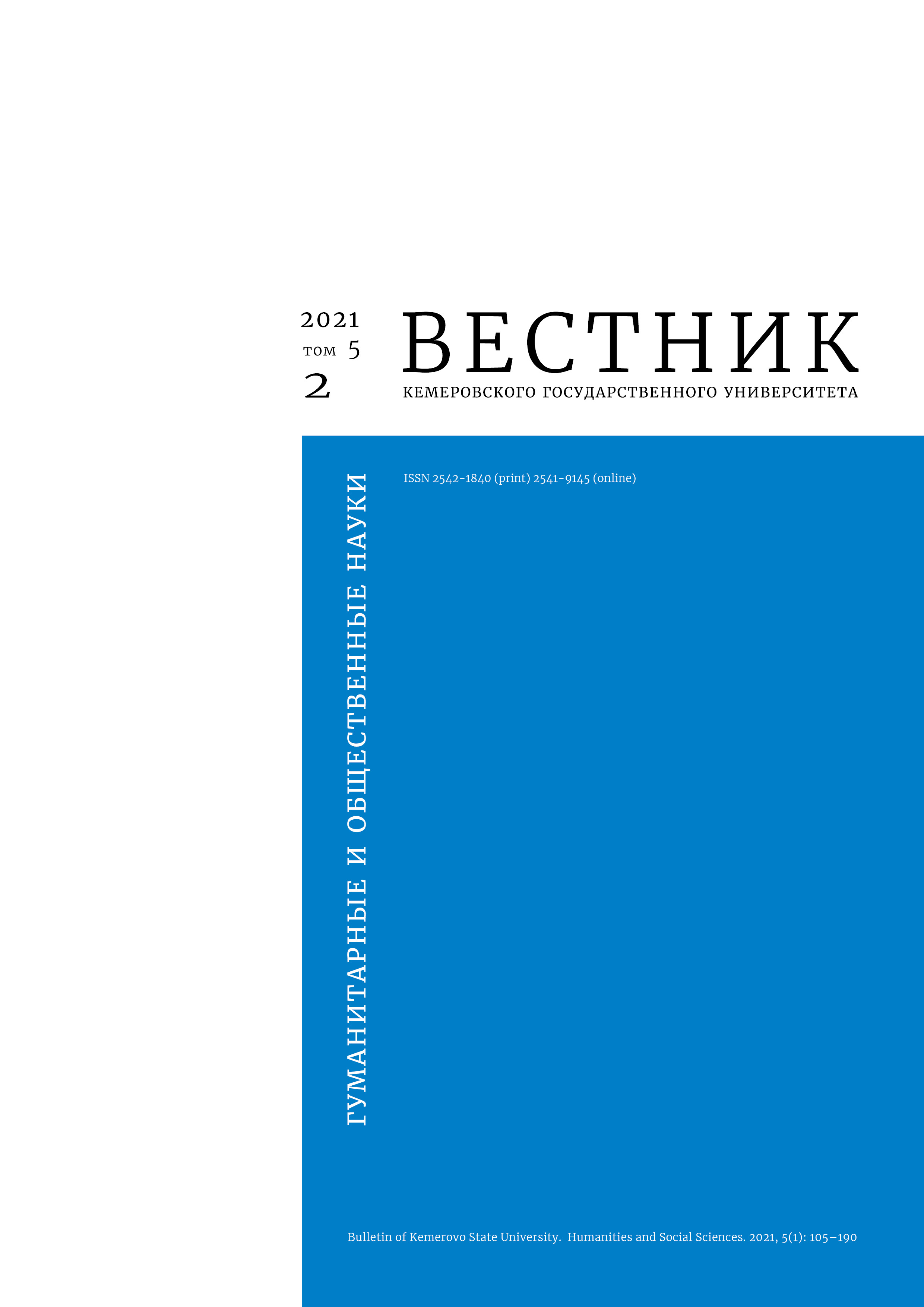Republican Multidisciplinary Lyceum for Gifted Children
Makhachkala, Russian Federation
Cross-cultural analysis has firmly taken its place in linguistics, while the novelty of the term is relative: we are dealing with a new definition of what was meant by the concept of ethnolinguistics, linguistics, and cultural studies. In literary studies, cross-cultural analysis is a new term for culturological comparative studies, i.e. an analysis from the point of view of the "dialogue of cultures", which makes it possible to single out the national images of the world. The aim of the present research was to study the cross-cultural component in the works of the national authors of Dagestan who write in Russian. The study featured Russian-language poetic texts created by Dagestan authors and how they reflect the national identity of the author. Cross-cultural analysis relies on the idea about universal cultural patterns. As a result, Dagestan Russian-language literature can be interpreted as a set of national works written in Russian. Literary text as a role model plays a fundamental role in language acquisition. Reading fiction allows language learners to move away from standardized teaching texts and immerse into the "living" language. While studying a foreign work of art, the learner touches upon both linguistics and culture: it provides information about the social and cultural structure of a foreign community. A positive aspect of using literary texts for educational purposes makes it possible to learn more about the culture of the people, since the texts always reflect the language in its historical, social, and cultural context.
national literature, bilingual creativity, cross-cultural analysis, poetry, prose, national writer, educational of Dagestan, pedagogical course, educational process
1. Gamzatov G. G. Dagestan: historical and literary process. Makhachkala: Daguchpedgiz, 1990, 309. (In Russ.)
2. Mazanaev Sh. A. Bilingual artistic creativity in the system of national literatures. Makhachkala: Iupiter, 1997, 263. (In Russ.)
3. Rabenko T. G. Axiological dominants of the diary genre (based on personal diaries). Siberian Journal of Philology, 2020, (2): 302-313. (In Russ.) DOI:https://doi.org/10.17223/18137083/71/25
4. Dvoryashina V. S. Compositional features of John Steinbeck's "A Russian journal". Filologicheskie nauki. Voprosy teorii i praktiki, 2020, 13(8): 63-67. (In Russ.) DOI:https://doi.org/10.30853/filnauki.2020.8.13
5. Esin A. B. Principles and methods of analysis of a literary work, 3rd ed. Moscow: Flinta; Nauka, 2000, 246. (In Russ.)
6. Tyupa V. I. Analytics of the artistic. Moscow: Labirint; RGGU, 2001, 189. (In Russ.)
7. Dubnyakova O. A., Kashina T. A. Communicative and pragmatic particularities of personal diary. Vestnik MGPU. Seriya: Filologiya. Teoriya yazy'ka. Yazy'kovoe obrazovanie, 2017, (1): 42-49. (In Russ.)
8. Salkhanova Zh. Kh., Utebekova A. S. Diary as a literary genre. Neofilologiya, 2020, 6(22): 368-376. (In Russ.) DOI:https://doi.org/10.20310/2587-6953-2020-6-22-368-376
9. Verbitsky A. A. Cross-cultural context of education and the formation of a new pedagogical paradigm. Higher education today, 2008, (8): 28-31. (In Russ.)
10. Gachev G. D. The mentality of the peoples of the world. Moscow: Eksmo; Algoritm, 2008, 541. (In Russ.)
11. Popadeykina I. Fiction text in the classroom on Russian as a foreign language. Theory and practice of teaching Russian as a foreign language, eds. Popadeykina I., Czachor R. Wroclaw: Fond "Russko-polskii institut", 2012, 136-144. (In Russ.)
12. Volkov V. V. Synergy and synergisticity as an attributes of literary work. Vestnik Tverskogo gosudarstvennogo universiteta. Seriia: Filologiia, 2020, (1): 95-108. (In Russ.)
13. Kapieva N. V. A life lived completely: about the work of Effendi Kapiev. Moscow: Sov. pisatel, 1969, 280. (In Russ.)
14. Magomedov M. I. Humanitarian Dagestan: language, culture, and education. Makhachkala: Aleph, 2013, 558. (In Russ.)
15. Dovletkireeva L. M. Young voices of the Caucasus. Kulturnaya zhizn Yuga Rossii, 2013, (4): 116-117. (In Russ.)
16. Magomedov M. I. Artistic bilingualism in Dagestan literature. Makhachkala: Aleph, 2015, 145. (In Russ.)
17. Fiction speech of the Russian diaspora: 1920s-1930s, ed. Rogova K. A. St. Petersburg: Izd-vo S.-Peterburgskogo universiteta, 2002, 326. (In Russ.)
18. Musaev K. M. Interethnic relations and the development of national literatures. Baku: Elm, 1989, 180. (In Russ.)
19. Muslimova M. Sh. Dialogue of cultures in literature lessons. Makhachkala: Izd-vo DGU, 1994, 54. (In Russ.)
20. Esin A. B. Literary criticism. Culturology. Moscow: Flinta; Nauka, 2002, 350. (In Russ.)
21. Dzhurinskii A. N. Comparative pedagogy. View from Russia. Moscow: MPGU; Prometei, 2013, 159. (In Russ.)
22. Toporov V. N. Model of the world. Myths of the peoples of the world, ed. Tokarev S. A. Moscow: Direkt-Media, 2008, 677-679. (In Russ.)
23. Ramonov S. D. "Russian-speaking" as a problem of national literatures. Darial, 1996, (1): 91-98. (In Russ.)
24. Sultanov K. K. National specificity and artistic value: at the crossroads of ethnocultural discourse and axiological critique. Studia Litterarum, 2018, 3(2): 230-251. (In Russ.) DOI:https://doi.org/10.22455/2500-4247-2018-3-2-230-251
25. Domanskii V. A. Literature and culture. Moscow: Nauka; Flinta, 2002, 366. (In Russ.)
26. Sharashidze G. Indo-European memory of the Caucasus, tr. Kambolov T. Vladikavkaz: Ir, 2004, 79. (In Russ.)
27. Ovsyannikova T. V. The pedagogical conditions of formation of intercultural competence of students. Vektor nauki Tolyattinskogo gosudarstvennogo universiteta. Seriya: Pedagogika, psikhologiya, 2011, (2): 152-155. (In Russ.)
28. Sinyagina N. Yu., Gevorgyan M. M. Multicultural educational environment as a condition for overcoming ethnocentrism. Vestnik Kostromskogo gosudarstvennogo universiteta im. N. A. Nekrasova. Seriia: Pedagogika. Psikhologiia. Sotsialnaia rabota. Iuvenologiia. Sotsiokinetika, 2014, 20(2): 24-27. (In Russ.)
29. Lebedeva N. M. An introduction to ethnic and cross-cultural psychology. Moscow: Kliuch-S, 1999, 223. (In Russ.)
30. Sultanov K. K. From Home to the World. Ethno-national identity in literature and intercultural dialogue. Moscow: Nauka, 2007, 301. (In Russ.)
31. Ilyasova Z. K. The distinctive features of cultural codes (by a case study of the spiritual culture of the peoples of Dagestan). Obshchestvo: filosofiia, istoriia, kultura, 2019, (7): 46-50. (In Russ.) DOI:https://doi.org/10.24158/fik.2019.7.8


















